LG’s DualUp monitor is … unique. With its almost square, slightly vertical aspect ratio, it definitely stands out. Yet, somehow, I really love this thing. It’s an HDR display with a 2560×2880 resolution that is basically two 1440p displays stacked on top of each other. Trying to watch a movie or play games may be a bit weird on this display, but it’s a king of productivity – especially for a device like the M2 MacBook Air that’s limited to just one external display.
Video: Is the LG DualUp the perfect M2 companion?
I have a lot to say about the LG DualUp, but before I get into that, here’s a quick look at the specs:
LG DualUp Specs
- Resolution: 2560×2880 pixels
- Refresh rate: 60Hz
- Size: 27.5 inches
- Brightness: 300 typical
- HDR10, 98% DCI-P3 color
- Inputs: USB-C, 2xHDMI, DisplayPort
- USB Hub: USB-C or USB-B upstream input, 2x USB-A downstream
Gaming on the DualUp?
Gaming is by no means the focus of this monitor, but people are going to ask, so I have to address it. For most gaming, the DualUp just makes no sense. The funky aspect ratio can put menus and on-screen elements at odd locations, and the peripheral vision provided by ultra wide monitors has really spurred their popularity for a reason. But it builds on the same resolution – 1440p – that most ultra wide monitors use. It’s a good middle-ground resolution that’s easier to power at high frame rates than 4k, but sharper than 1080P.
The DualUp goes the opposite direction of ultrawides and makes the display taller – but that doesn’t mean *no* gaming makes sense on the display. Retro games designed for the boxier TVs of days past play great, without the massive black bars you would get on most modern monitors. It’s a large experience made easier by the fact that you can turn the monitor sideways for a slightly wider gaming experience. If you enjoy emulation and retro games, the DualUp does a great job with them.

Its ability to function essentially as two separate displays – with the top 2560×1440 pixels showing one display input and the bottom 2560x1440p showing another – could even be useful for streamers monitoring multiple devices.
M2 productivity limitations
Base level M1 and M2 devices provide an enormous increase in efficiency and power from the MacBook Air’s of days past. But one limitation stops them from being true productivity machines, and that’s the inability to connect to multiple external displays. (There are some workarounds, but they have their own limitations.) Being limited to one external display (without some limited workarounds) won’t affect most people, but for power users who like a multi-monitor setup, it can certainly get in the way. With the entry-level chips, you’re limited to the screen real estate of your laptop’s included monitor and a single external display. So something like the DualUp, which has the resolution and size of two 21.5″ 1440p monitors stacked on top of each other, could provide additional productivity options.
LG DualUp productivity
In line with that productivity focus, the DualUp offers a large screen and good color accuracy rather than focusing on high refresh rate or pushing the resolution to the extreme. In LG’s product images, they focus on creative work – like editing video in Premiere. Using it for that same use case has been stellar. Of course, you can have a large source window up top with your video, with plenty of extra vertical room for your timeline, effects panels, project, color grading, and more. I love working with such a massive preview without the need for another dedicated monitor.
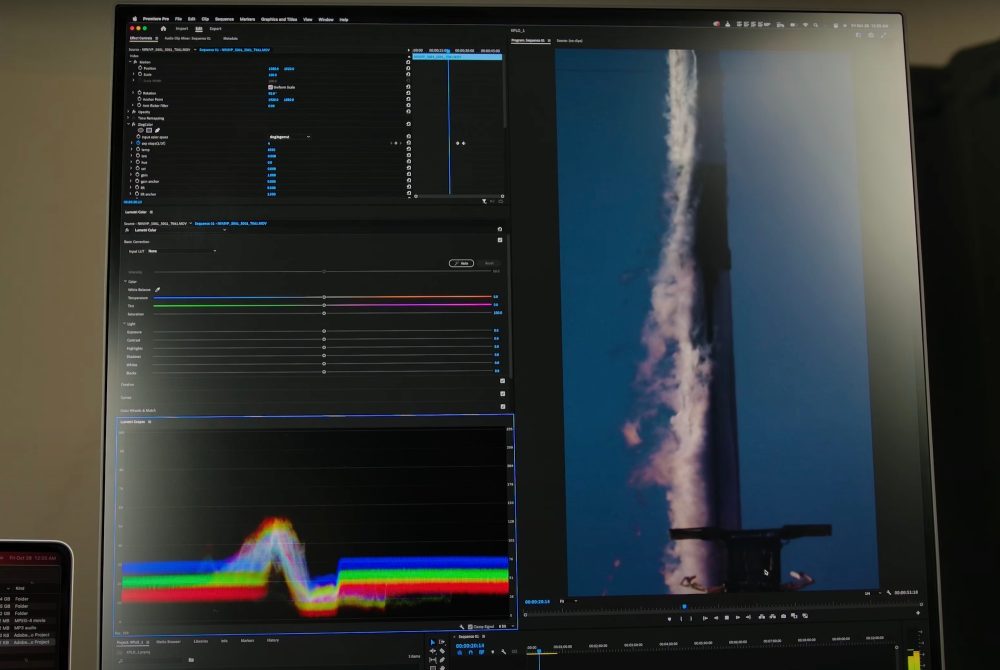
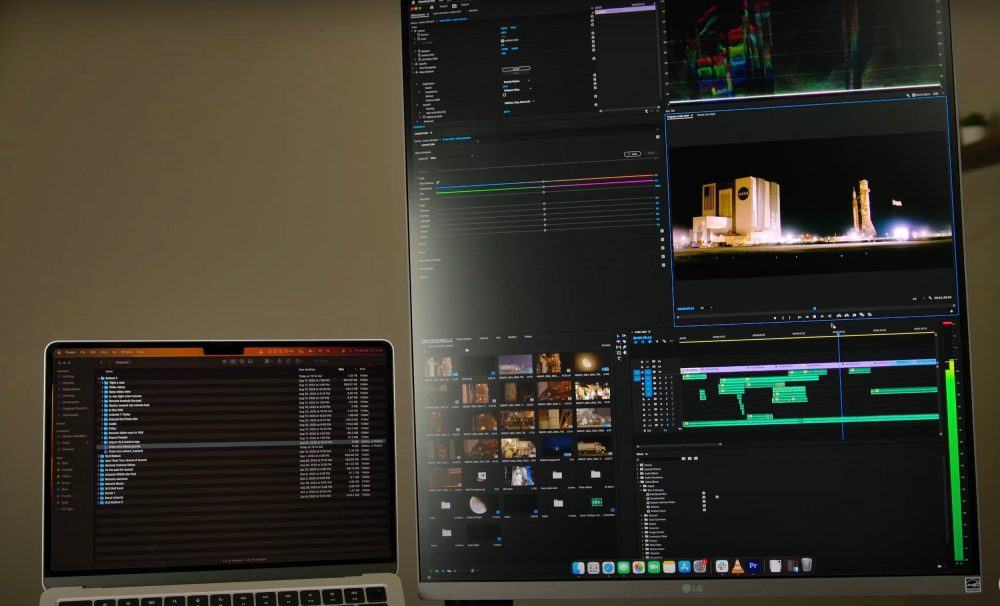
The DualUp also excels when when working on short form, vertical videos. Using a 9×16 frame in a 16×9 monitor has always been limited, but the extra vertical room to rearrange windows with the DualUp makes it so much better. With a PC or high end MacBook/ Mac Studio you can come to a similar solution by stacking multiple monitors, but the DualUp does so more elegantly – and multiple monitors are not an option with the MacBook Air.
My primary use for the DualUp has been video work, but whether you’re working in Photoshop, editing raw files in Lightroom, compositing in After Effects, or even just working with massive spreadsheets and lots of windows, you could find use for the extra screen real estate. I’m sure there are plenty more use cases for this oddball 16×18 aspect ratio, so if you have any feel free to share them in the comments.
Ergonomics
LG calls the stand that comes with the DualUp the “Ergo stand,” and it certainly earns that name. The stand clamps onto your desk, and then the arm lets you position the monitor basically however you want. It provides height adjust, the ability to move your monitor forward and backward, swivel, and pivot. You can use it to position your monitor in its standard slightly portrait orientation or turn it sideways for a slightly landscape view. It’s truly stellar for an included stand, providing even more versatility than Apple’s $1,000 Pro Stand for the Pro Display XDR (and for over $300 less, while including the actual monitor).
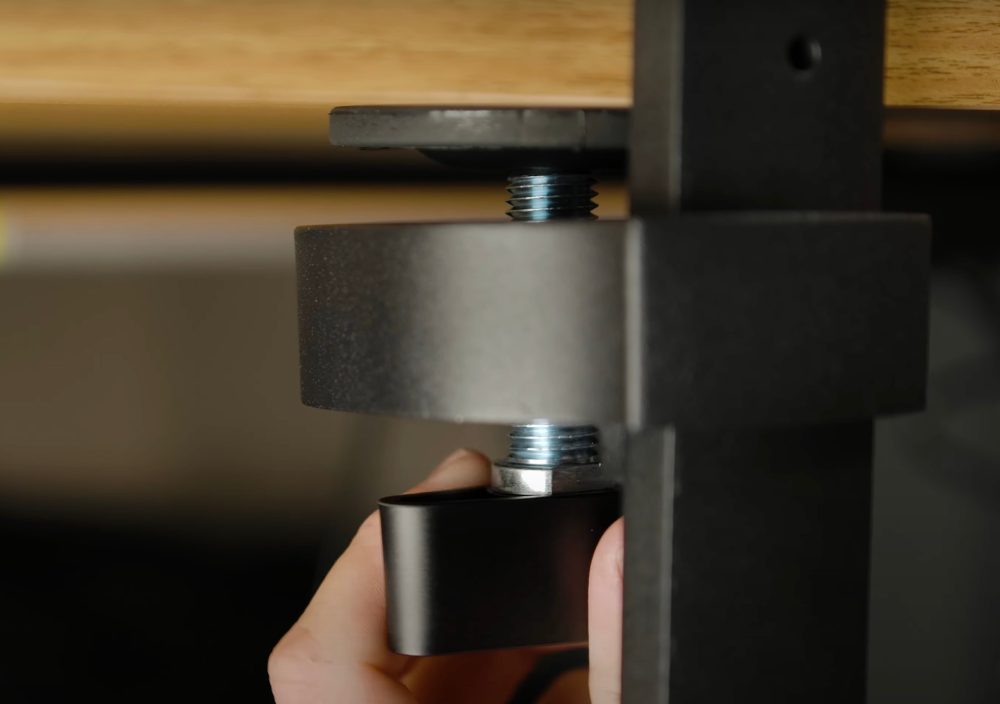
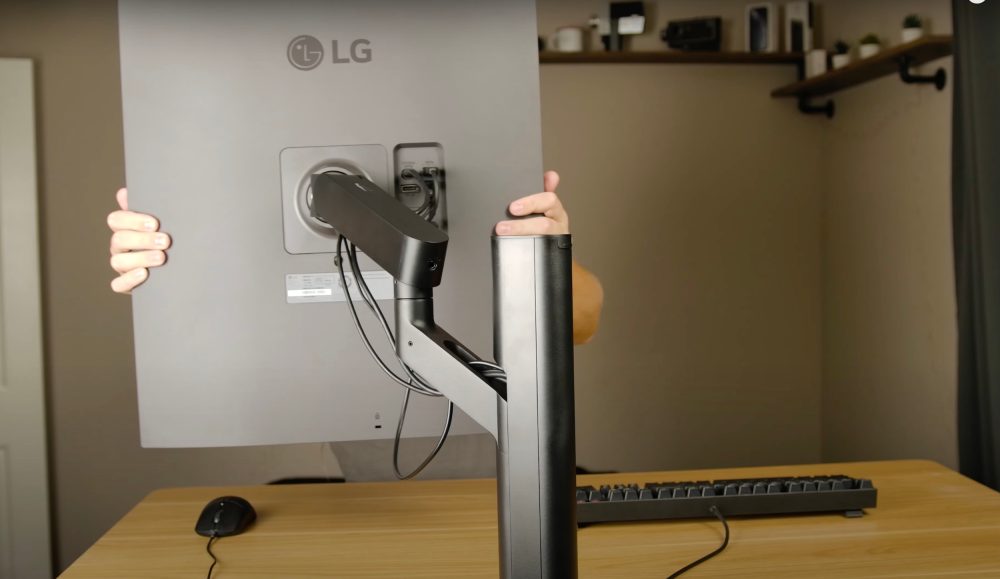
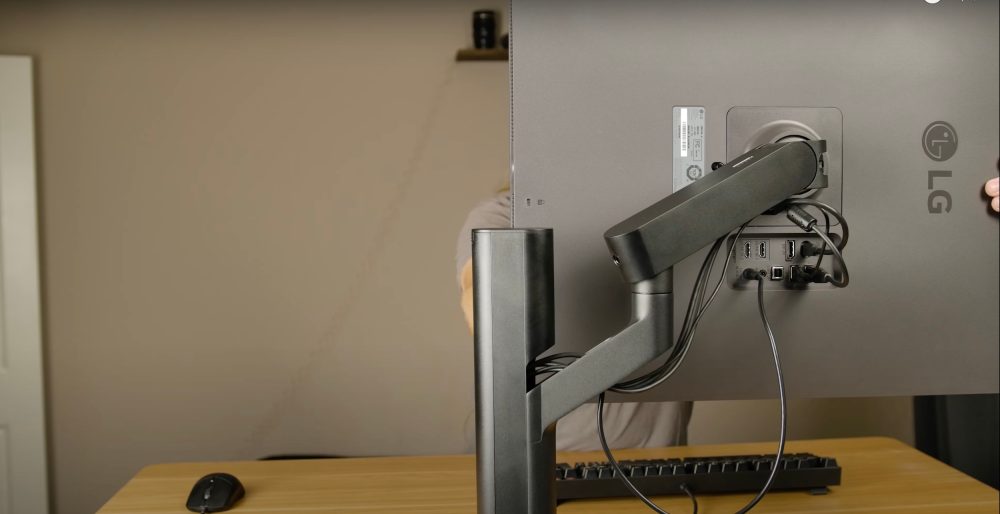
The size is about as large as I would consider reasonable – much taller and it could be become difficult to read some elements at the very top of the display. As it is, the 27.5 inch display with its unique aspect ratio is a reasonable size to look at.
The stand also includes routing down the back for all the cables, and you may have quite a few, because there are a few different connectivity options.
Connectivity
For Macs, the only necessary connectivity will be the (included) USB-C cable. The monitor can deliver plenty of power to keep your MacBook powered, and with two USB-A downstream ports, you can keep your keyboard and mouse (or other peripherals) connected to your monitor for a one-cable solution.
But this DualUp isn’t designed exclusively for Macs, so you also have two HDMI inputs and a display port input, in addition to a USB upstream port, headphone jack, and the power input. And LG includes a USB-B cable, USB-C cable, and HDMI cable in the box.
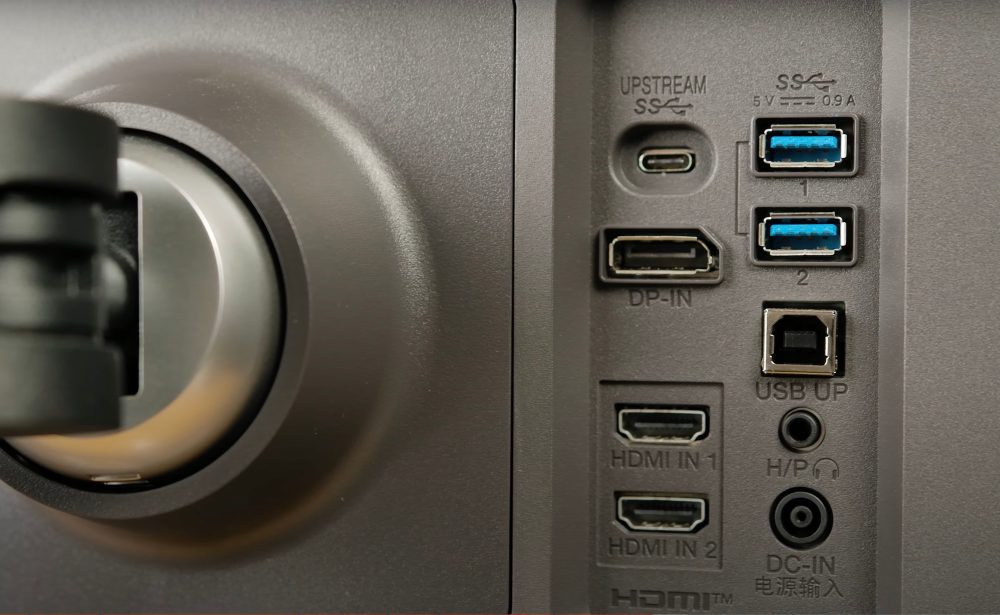
One potential downside compared to the likes of the Apple’s Studio display, or even the LG Ultrafine 5k, is the reliance on the physical controls of the display rather than MacOS software controls – though some may find this preferable. Thankfully, though, the control joystick on the bottom of the display makes it very easy to switch through settings, change inputs, adjust color, or do anything else you may need to in the menu.
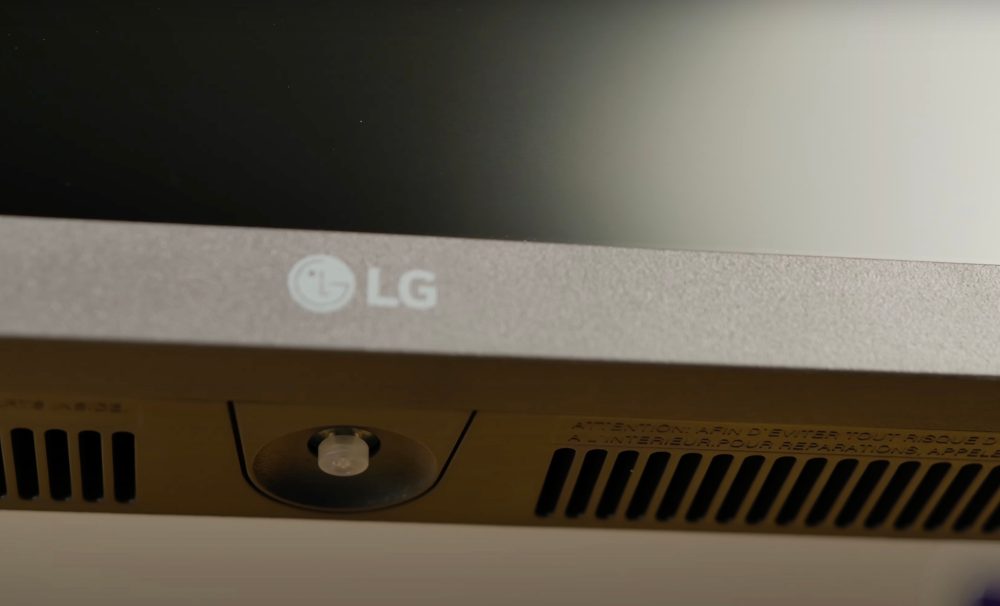
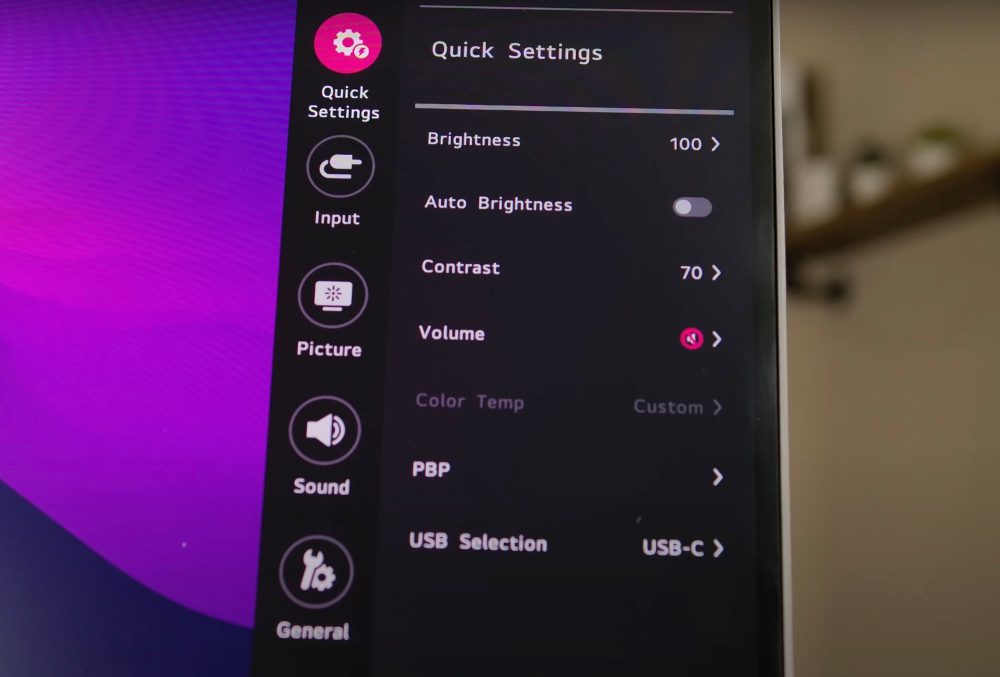
The Downsides
Low pixel density
If you’re used to the high resolution of Apple’s devices, especially something like their 5k Studio Display, switching over to a sub-4k display may seem like a massive downgrade. Depending on your application, it could be. The Studio display has its merits, with a very high resolution, good color, and MacOS integration. It also costs about $1,000 more than the DualUp, has a standard aspect ratio, and doesn’t include such an ergonomic and versatile stand. If you really want a higher resolution, you can get that with the studio display, but if you want to maximize some forms of productivity, the DualUp is the way to go. I also never had an issue with the lower pixel density of the DualUp while sitting a standard distance from my monitor.
Matte vs. Gloss
This comes into play primarily if you want to use the DualUp alongside your MacBook’s built in display and you’ll regularly be looking back and forth between the two. While MacBooks have glossy displays built in, the LG DualUp has a matte display. Neither one is “good” or “bad,” but they are different, and having a matte display right beside a glossy display could make the two appear different based on the lighting conditions in the room. It’s not a deal-breaker for me, but it’s certainly worth being aware of before you pick one up.
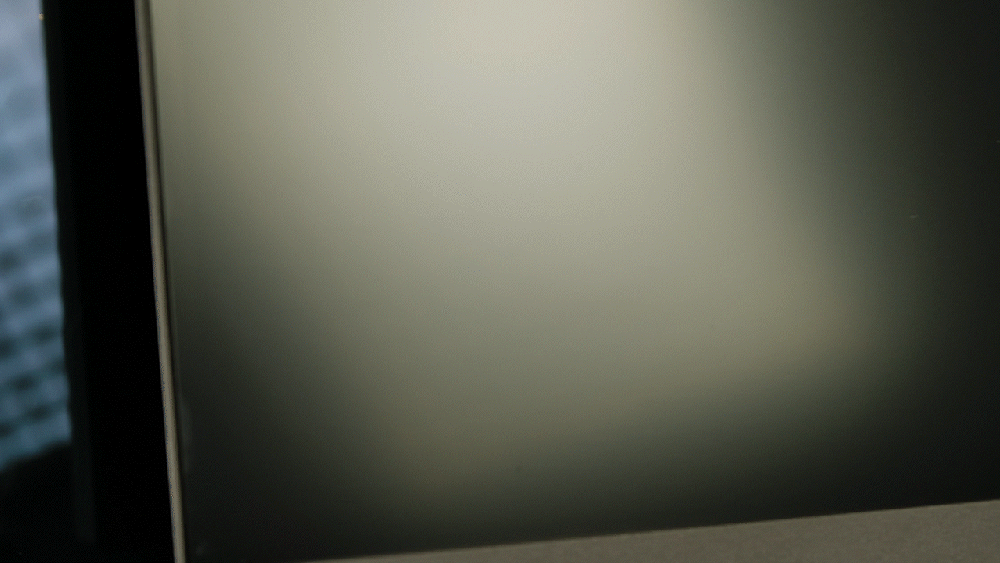
9to5Mac’s Take
The LG DualUP has its pros and its cons, but it excels in its area of focus – productivity. The DualUP has been an extremely useful tool whether writing with lots of reference material, editing video, or just during general multitasking. If you’re looking for a new gaming display, sure, look somewhere else, but if your desk setup is focused on productivity, I can’t think of another monitor that matches what the LG DualUp can provide.
You can pick up the LG DualUp over on Amazon for $690
FTC: We use income earning auto affiliate links. More.





![9to5Rewards: MacBook Pro giveaway + Chargeasap Connect Pro 100W cable [Giveaway]](https://www.blackbikertv.com/wp-content/uploads/2024/07/73446-9to5rewards-macbook-pro-giveaway-chargeasap-connect-pro-100w-cable-giveaway-344x193.jpg)

